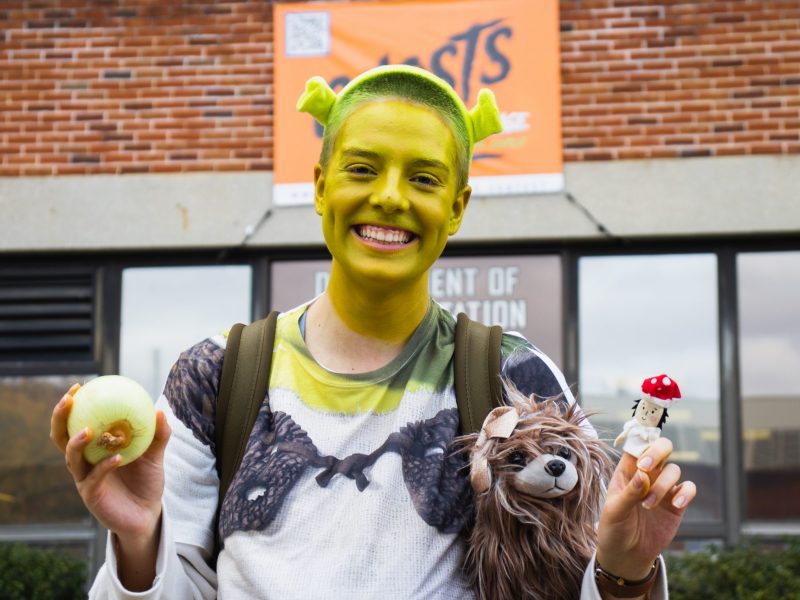If 2020 could be summed up in one painful cliche, it would probably be “Out with the old, and in with the new.” Lockdowns have given us the rare resource of time, and this forced pause has given us a chance to really evaluate our world. We have gone full Marie Kondo, letting go of things that no longer “spark joy.”
This year, everything was subject to scrutiny, from the companies deemed “canceled” to the American institutions criticized for upholding unjust systems.
Our award bodies, including The Grammys, are some of those institutions. The awards show is no stranger to controversy. It has historically pigeonholed Black artists into rap and R&B categories. About 30 years ago, rappers even boycotted the show over disrespect toward the genre.
And though the organization took some performative actions in 2020 by renaming categories historically dominated by artists of color — “World Music” is now “Global Music” and “Urban Contemporary” has been changed to “Progressive R&B” — the only laudable change they made was adding more people of color to the nomination process.
[The tenuous hope of my Trump-free twenties]
Unsurprisingly, these actions did little to change the deeply rooted issues in the Grammys nomination process. The Grammys have effectively designated rap and R&B categories for Black artists, and yet the nominations committee still somehow managed to overlook those genres’ major talents.
Roddy Ricch, for example, had a huge year. His hit “The Box” is nominated for Song of the Year, but his highly acclaimed album Please Excuse Me For Being Antisocial was overlooked in all categories. Lil Baby also dominated 2020, and though “The Bigger Picture” did receive two nominations, his album My Turn — his first number-one album — got nothing.
And nothing is more shocking than R&B artist The Weeknd’s chart-topping album After Hours and hit single “Blinding Lights” receiving zero recognition. He tweeted his disappointment after the nominations were announced, demanding transparency.
Classifying work into genres has always been a mess for the Grammys, but overlooking The Weeknd’s genre-bending album only makes that more obvious. Black artists are “supposed” to fill the R&B category. As incredible as The Weeknd’s pop experimentation was, he is seen as “out of place” in the pop category. No Black artists were nominated for Best Pop Vocal Album this year.
This theory that race plays a role in nominations only seemed more plausible when Justin Bieber expressed confusion over his nominations on Instagram. His album Changes is R&B, but it was only nominated in pop categories.
[“A little taste of normal life”: How tattoos are getting students through quarantine]
The Grammys are proving how difficult it is to crack the systemic problems in our powerful institutions. It’s clear no tangible change will come from just including new people or changing names.
It’s predictable someone unknown to the mainstream will walk away with a notable win over more popular artists every year, like when rock singer-songwriter Beck won 2015 Album of the Year over Beyonce’s eponymous album.
Some losses are definitely more asinine than others, though. It’s impossible to forget when Macklemore and Ryan Lewis won Best Rap Album back in 2014 for their debut studio album The Heist. It beat Drake’s Nothing Was the Same, Kendrick Lamar’s Good Kid, M.A.A.D City, Kanye West’s Yeezus and Jay Z’s Magna Carta…Holy Grail. The duo won three out of the four rap categories. They also beat Kendrick Lamar for Best New Artist, which Macklemore literally apologized to him for.
We are still collectively puzzled six years later as to how the guys responsible for “Thrift Shop” managed to beat out four rappers who revolutionized the entire music industry, let alone the genre.
It’s clear the Grammys have not served the music industry in an equitable way for a long time (and they clearly never served people of color). We somehow expected the massive institution that never gave Black artists equal respect to magically do it, yet they are still struggling today. We don’t need to wait for them to finally figure out how to fix these issues.
Listeners need to remember arbitrary lists and achievements, from the Grammys to the Forbes 30 Under 30, are exactly that: arbitrary. We can choose not to give the Grammys their power. Nicki Minaj has never won a Grammy, but she is still one of the most influential female rappers of all time. If we are still deciding what “no longer serves us” in 2020, award bodies should be high on the list.



